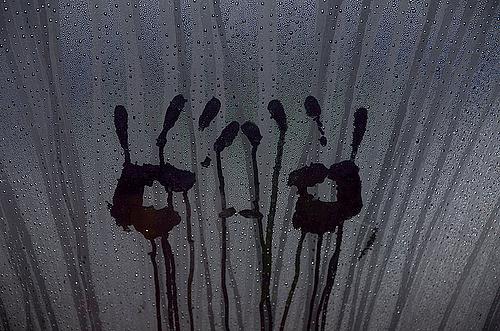Rising Temperatures May Trigger More Wars

We all tend to get cranky and short fused when temperatures soar because we’re so uncomfortable, but sizzling weather may do a lot more than just make us grumpy. It could be a catalyst behind ethnic clashes, social upheaval and wars, and spark violent behavior, according to a controversial UC Berkeley study released earlier this month, which attempts to quantify the effects climate change will have on conflict. In the process, it illuminates yet another way that global warming may negatively impact our health.
The main point of the study, which was published in Science, is that the incidence of war and civil unrest could increase up to 56% by 2050 because of the warmer temperatures and extreme rainfall patterns that are predicted by climate change scientists, while interpersonal violence -- murder, assault, rape, domestic abuse -- could rise by up to 16%.
The study’s conclusions were based on a meta-analysis of 60 papers across a variety of fields -- such as climatology, archaeology, economics, political science and psychology -- that looked at a wide range of examples, like road rage, ancient wars, Major League Baseball, civil unrest in Africa, domestic violence in India after the recent droughts, and a spike in assaults, rape and murders during U.S. heat waves, and then analyzed the results. Pooling data from dozens of studies dramatically increases the sample size, which in turns boosts the statistical power of the research. In many cases, combining studies can reveal significant patterns and results that may not be evident in individual studies.
The researchers haven’t identified a clear physiological cause between rising temperatures and aggression -- although intuitively, when people are uncomfortably hot, they become more belligerent. But they compare their findings to what we knew about smoking and cancer in the 1930s -- there was an obvious connection but it took several decades of research to figure out the precise mechanism.
Conventional wisdom says that as resources become scarcer -- more crop failures, less water, the collapse of agriculture -- the number of violent conflicts across the world will increase. Recent events and other studies indicate this may well be the case. Soaring prices for staples after floods and droughts caused widespread crop failures in 2007 and 2008 were partly to blame for food riots in more than 30 developing countries. In 2010, the wildfires in Russia, driven by sizzling temperatures and record drought, incinerated the Russian wheat crop, which prompted the Kremlin to ban wheat exports. The resulting shortage pushed food prices to record highs, sparking unrest and riots across Africa.
In a similar vein, a team led by UC Berkeley’s Marshall Burke, an agricultural economist and a co-author on the Science paper, looked at African wars from 1980 to 2002 and found that civil wars were more likely to begin during hotter years, and that a 1°C rise in temperatures was linked to a 50 percent increase in conflicts in that year.
“The link between temperature and violence was striking, even more so than precipitation,” Burke told me when I interviewed him for my book, Fevered. “What seems to be driving this relationship is the drop in crop yields, which are really sensitive to small changes in temperature. When yields go down, economic opportunities more broadly go down, which provides the impetus for them to join rebellions."
Because temperatures are expected to go up by at least 1°C (about 1.8°F) over the next 20 years, Marshall and his colleagues estimated that climate change could increase the number of civil wars in Sub-Saharan Africa over that time period by 54 percent. The human costs could be staggering, with nearly 400,000 lives potentially being lost in these conflicts.
“And these are just the battle deaths, which account for only about 10 percent of mortality during conflicts,” Burke told me. “The likely toll will be an order of magnitude
higher -- possibly four million -- because of people who are displaced and malnourished, outbreaks of cholera, or other disease epidemics.”
Even advanced, industrialized democracies are feeling these effects. In Australia, which experienced a decade long drought that decimated farming communities, the collapse of local economies and increased threats to mental health that sparked negative changes in health-related behaviors, including domestic violence, alcoholism, drug addiction and smoking, several studies showed. Families unraveled under the corrosive strains and social cohesion broke down because of the loss of jobs, homes and comforting routines. After being crushed by bad weather, one in five people experienced “extreme stress, emotional injury and despair,” according to a recent study by Australia’s Climate Institute, which noted “this is a ‘new normal,’ for which the past provides little guidance.”
Linda Marsa's book FEVERED is now available wherever books and e-books are sold.
Image by Kewl via Flickr
